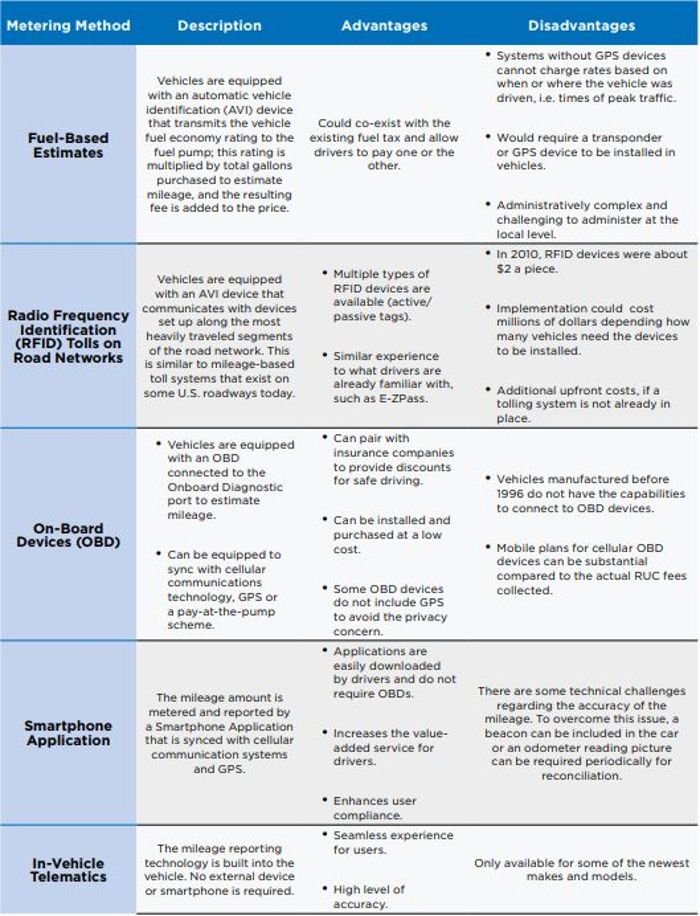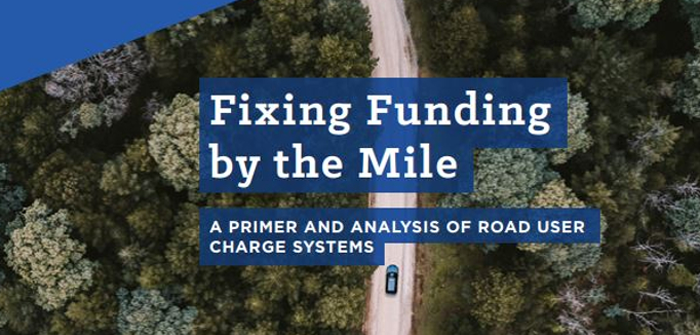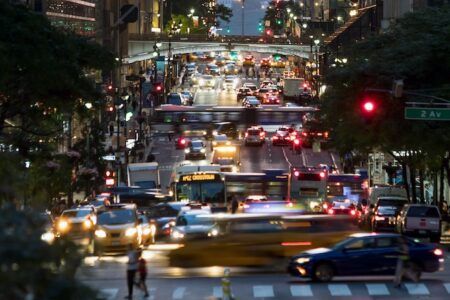At its annual Congressional City Conference in Washington DC, the National League of Cities (NLC) advocacy group released a new report intended to help local leaders pilot road user charge (RUC) systems.
Representing more than 19,000 urban environments across the USA, the NLC’s report, Fixing Funding by the Mile: A Primer and Analysis of Road User Charge Systems, explains that a RUC system, also commonly referred to as a Vehicle Miles Traveled (VMT) tax or a Mileage Based User Fee (MBUF) system, would charge a driver for their use of a roadway.
RUC systems could be used as a potential sustainable funding solution for the USA’s transportation infrastructure deficit and an answer to the financial challenges of the Highway Trust Fund, which is set to run dry by 2021.
In the report, the NLC explores how RUC systems can become a practical funding alternative to keep up with the country’s transportation mobility projects. The report analyzes the technology behind RUC systems, reviews the different pilot programs, and shows the potential advantages and barriers to implementing a RUC program in the USA.
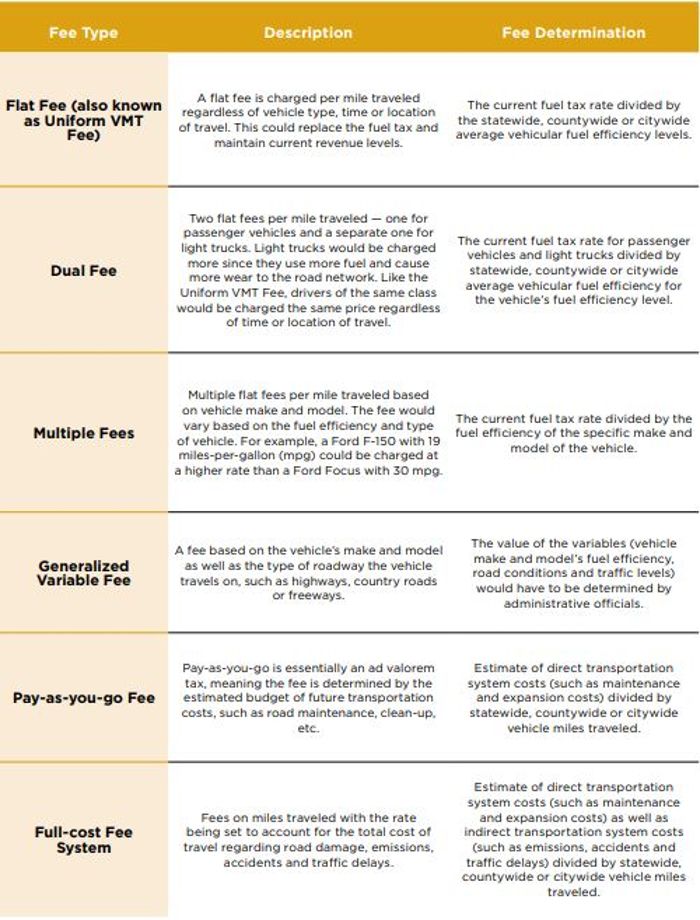 The report notes that 3.2 trillion miles were driven on US roads in 2016. Autonomous vehicle technology, app-based mobility models and promises of smart city connectivity now make road user models more practical for the future. The study explains that gas tax revenues, which have traditionally funded infrastructure projects, are projected to drop steadily with the advent of electric vehicles, and that by 2025, 14% of road vehicles could be electric.
The report notes that 3.2 trillion miles were driven on US roads in 2016. Autonomous vehicle technology, app-based mobility models and promises of smart city connectivity now make road user models more practical for the future. The study explains that gas tax revenues, which have traditionally funded infrastructure projects, are projected to drop steadily with the advent of electric vehicles, and that by 2025, 14% of road vehicles could be electric.
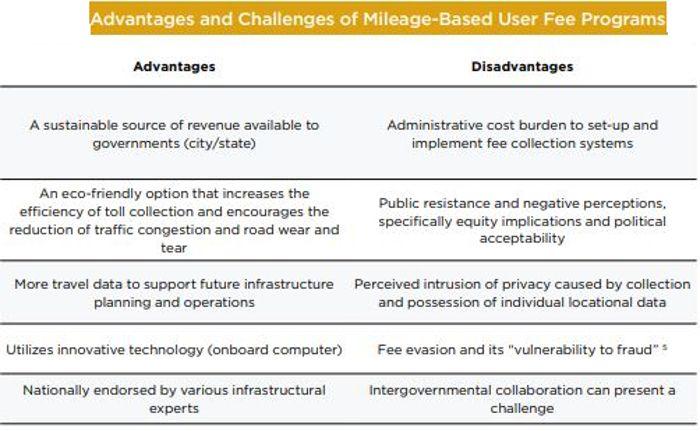 These RUC systems could charge a driver for their use of a roadway and provide sustainable funding for the country’s transportation infrastructure. The report’s recommendations for cities looking to implement pilots include:
These RUC systems could charge a driver for their use of a roadway and provide sustainable funding for the country’s transportation infrastructure. The report’s recommendations for cities looking to implement pilots include:
- Encourage Collaborative Efforts;
- Gain State Legislative Buy-in;
- Understand Public Opinion;
- Provide the Public with Options.
Research for the guide was completed by the American University’s Department of Public Administration and Policy, in partnership with NLC, and forms part of the group’s top legislative priority in 2019 of rebuilding and reimagining the country’s infrastructure.
The ‘Rebuild With Us’ campaign has prioritized ways Congress and the administration can work with local leaders in key areas, including transforming transportation systems, broadband and water infrastructure. NLC is calling on Congress to develop and pass a comprehensive bill that rebuilds and reimagines the USA’s infrastructure in partnership with local governments.
“Having safe, reliable infrastructure is a priority for every single local leader,” said NLC president, Karen Freeman-Wilson, mayor of Gary, Indiana. “Investing in infrastructure means investing in the people in our communities. By piloting new technologies like road user charge systems, local leaders have the opportunity to find ways to sustainably and equitably fund infrastructure.”
Brooks Rainwater, senior executive and director for NLC’s Center for City Solutions, added, “The mobility landscape is changing: Driverless cars, electric vehicles, e-scooters and even robots are coming to our streets. But we still haven’t fixed our nation’s infrastructure. We all deserve safe roads and bridges, clean drinking water and access to broadband. Ultimately, city leaders will be the ones to usher in the innovative, forward-looking systems to get us there.”
